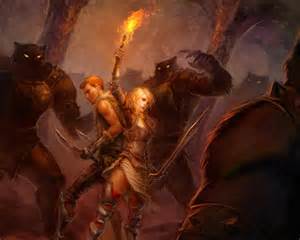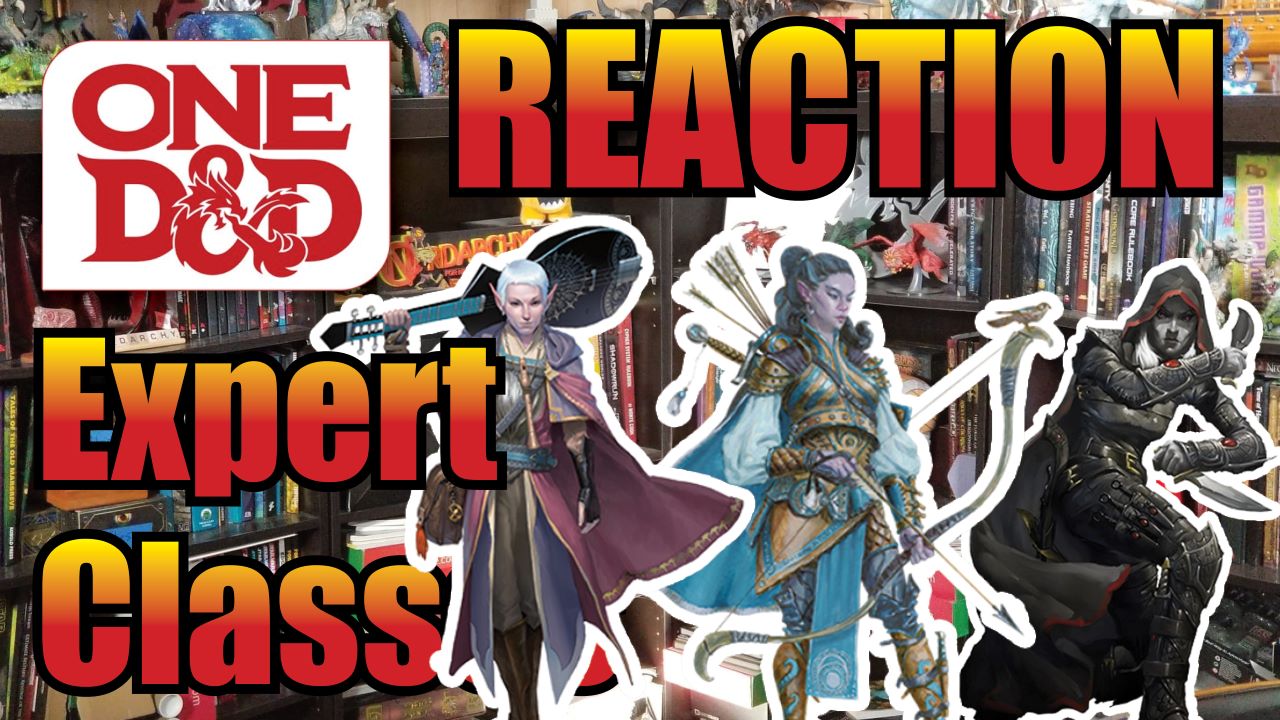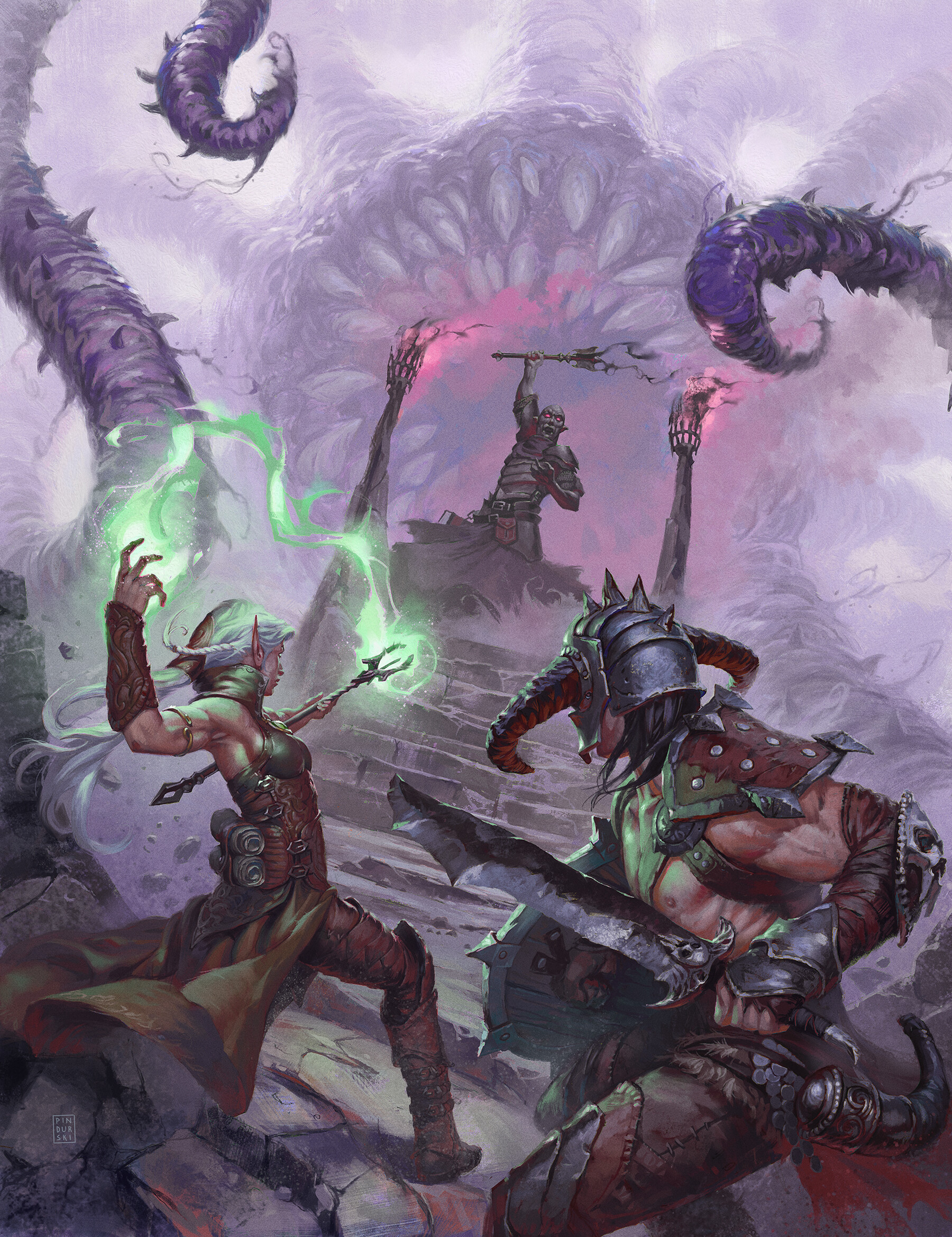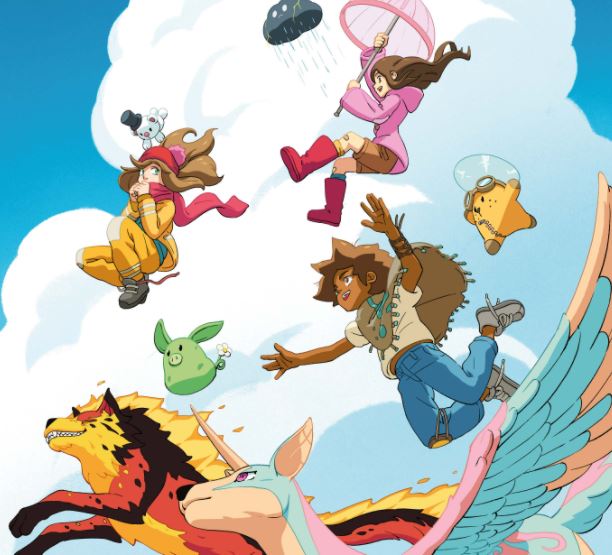
Torches: Not so Bright an Idea!
Torches were a useful thing to a warrior of the past. They allowed for the easy transport of relatively  strong flame, which could be useful for several things including the rather deadly and destructive use it had in burning towns and buildings and such. This was especially useful in the past, where fire fighting was a fairly uphill battle (and still is to some degree) and when a single fire could burn entire cities at times. The point of this article is not to say torches are useless but to say instead we’ve all been using them incorrectly, be they in movies, games, or just about anything else. Essentially, torches were many things but they were not especially good at lighting your way.
strong flame, which could be useful for several things including the rather deadly and destructive use it had in burning towns and buildings and such. This was especially useful in the past, where fire fighting was a fairly uphill battle (and still is to some degree) and when a single fire could burn entire cities at times. The point of this article is not to say torches are useless but to say instead we’ve all been using them incorrectly, be they in movies, games, or just about anything else. Essentially, torches were many things but they were not especially good at lighting your way.
Torches do not make good light sources nor, more importantly, did people of the past (for our sake lets say medieval people since this site and myself mostly talk about fantasy games) attempt to use them for light very often at all. They last about thirty minutes, create a massive amount of smoke, and there are better options, namely lanterns, lamps, and candles. Torches created so much smoke you would likely soon die if you took it deep underground since you would fill up the entire cavern/dungeon with smoke. Also note though that night blindness is very real, and torches are an undirected bright light that constantly shines in your eyes.
It would be extremely hard to see anything beyond twenty feet or so. One might argue that in a fantasy setting, like the ones many of us play games set in, the components making up torches are made of better and less smokey (and less smelly) materials than the smelly tar that made up a lot of what made historical torches flammable (modern torches are different). To which I say….fair enough and I have no counterpoint except to say games like DnD seem to at least imply their real world items are supposed to be historical and only their magical/fantasy items are intended to be taken as completely made up.
In actuality, candles lit most folks way for most of human history. They are fairly cheap, lasted longer  than torches, and had less of a risk of burning down your town. Of note also is that oil lanterns are a relatively modern invention and when one hears “lantern” the image of a lantern with any glass component at all, let alone one with oil in it, would be incorrect for most of human history (although this seems like a thing that in a fantasy game dwarves could easily figure out).
than torches, and had less of a risk of burning down your town. Of note also is that oil lanterns are a relatively modern invention and when one hears “lantern” the image of a lantern with any glass component at all, let alone one with oil in it, would be incorrect for most of human history (although this seems like a thing that in a fantasy game dwarves could easily figure out).
Generally, where Hollywood has shown glass in any kind of historical piece, imagine instead vellum and things get a lot easier for wannabe historians like me to swallow (glass DID exist but was very expensive). Instead, lanterns were basically candles in boxes that kept them fairly resistant to the elements. Lamps were one of few things that did use oil fairly early on (oil which was not very flammable on its own but that’s a different story altogether). Lamps were relatively small, made of clay (usually), and while not extremely bright were again useful for traveling indoors at night.
In short, guards, adventurers, and wandering brigands would not be using torches (unless any of them  felt like burning something to the ground). Candles and lanterns did them just fine when they traveled at night (which was much rarer than today and often illegal, as night was extremely dark in the age before the light bulb). Gary Gygax and Hollywood have managed to perpetuate an odd myth via the torch, one that I am not really sure how it lasted this long. As always though, do and play as you will and justify as you wish but just know you would be very confusing to a medieval person. Although not just for the torch thing I imagine.
felt like burning something to the ground). Candles and lanterns did them just fine when they traveled at night (which was much rarer than today and often illegal, as night was extremely dark in the age before the light bulb). Gary Gygax and Hollywood have managed to perpetuate an odd myth via the torch, one that I am not really sure how it lasted this long. As always though, do and play as you will and justify as you wish but just know you would be very confusing to a medieval person. Although not just for the torch thing I imagine.
Special thanks to Lindybeige’s series on torches (found on Youtube). It had loads of useful information that made this article a ton easier to write. I recommend his channel to anyone interested in content like what you see in this article as he does tons of the same stuff I do.
Until Next Time, Stay Nerdy!












Anonymous Storyteller
June 11, 2017 at 1:41 amDon’t trust that guy…
Torches had twisted candles on a giant stick in medieval times. You can find the art and history online.
You really think the Fantasy world just had this idea plop out of the sky?
Many have reported historically the use of various metal implements used to hold torches, candles, oil lamps, and what is a mini torch, the splinter or rushlight.
There are idiots in the historical community who have also perpetuated the idea the ancestors woke up for no reason every night by custom to do stuff. Our bodies are naturally designed for sleep, and we really don’t have a very altered sleep schedule generally throughout history.
I can confirm the existence of cressets, giant metal torches or fire baskets or pots, used by guards in late medieval London to perform their watch duties. Militarily they used the lights for burning…so they never used them for lights to? Same idiot who said people had a second waking said people used night vision, I believe.
I mean really now…Parchment doesnt tear with hand power only a knife because it’s leather…that has been scraped down so much that the stuff is thin and self tears with stretched holes instead of hand tears…it blackens, but organic material doesn’t burn? Torches were used in war…but not at home…they used a giant hearth…but no torches…there is a famous incident of almost incineration of the royal monarch of France with torches while in costume…Church ceremonies involved the twisted wax torch…twisted is where we get the word torch from with the french…and candles were more expensive than the peasants rushlight made the same way so they didn’t use torches? Those things can last two hours according to some primitive torch makers, and with add pitch, resin, sulfur, animal fat, and lime in all various cases, you get a longer burning torch. I have found artwork with both a torch and Lantern, but I’m telling you the latter was more luxurious than your thinking. And nobody cut the smallest piece of rope because the guard or soldier who didn’t make it is trying to save the thing? Ever read of the English mercenaries who cut off the tongue of a cow and killed the whole thing just for the tongue? That was considered wasteful back then, obviously. But they still did it. And rope is nothing.
What happens in the story when the king is yelling they be set free and the guard rushes the job by cutting it? Will we be blinded by historians, or think that makes sense, but is the only exception we will allow for some dumb reason? I have just been reading a good fantasy story where they had to board up everything and couldn’t even take that much advantage of natural daylight without having some kind of horned windows for the night. And then because of the magic in the tower, dark had to be kept out and wax and straw torches lit along with candles.
And it is fantasy, not to escape realism, but because the history, culture, practices, and habits of the story world is altogether realistic, independent of our world, and wholly not even medieval! Tolkien described story as a secondary world into which our mind enters. Anything the subcreator tells you is true according to the laws of that world. If however, disbelief arises, the magic or rather art fails, and the mind is force dback into the primary world, life. He advocates secondary belief over the suspension of disbelief. Read his Essay on Fairy Stories. As a writer, that understanding of the world of story is perfect in every regard. Even a guy in the park is as unrealistic as superman, because you had to make him and his physical existence, physics and laws of physics, completely up.
The secondary world cannot share existence with the primary world, because one absolute reality shuts out the other, and both are mutually exclusive. So scientists have nothing on the physics of fiction because new physics are the same as the familiar duplicates of the laws of nature we know in our world. But still made up. Only duplicates. We then add new laws of physics, and then supernatural laws above and the exception to those physical laws. To deny the new laws is the same as denying the old, since neither ever are real in ours world or realistically ours. Gravity1, Gravity2, Earth1, Earth2, PineSpecies1, PineSpecies2. But none of those, the 1 or 2, be on the same order, together in the same universe and world physically. Otherwise go say hi to an earthly “normal” fiction character and see if they can say hi back, shoot you, or you shoot them. Two separate laws of physics for every physical existence. Then we continue to create separate laws of physics with understandable, detectable, distinguishable characteristics that make them not a duplicate of our laws, but unique, original, and, if we’re not kidding ourselves, great!
Magic and all other forms of fiction, even real things in our Primary world duplicated in the Secondary world of story, are under attack. If magic falls, than the motive of some becomes clear. It is not a disbelief to better realism in story and increase belief and quality, but to kill off the very fundamental nature of all story, it’s existence, it’s worth, it’s value, and it’s freedom. Scientists exploit it to place their study of our world above the truth of the story world and how superman is Science! He is the science of the world completely and irreversibly. Otherwise he is not in the story, giving you nothing to complain about in the first place. But if he is in the story, then he must be real and work realistically in the story. We understand this all, but with that understanding choose to reject it. We don’t see what it really is, we call it unbelievable instead what we obviously grasp and believe is a part of the story.
Historians are worse. It’s precedent, not physics or realism even in our world. Another world and history and they March on to exploit it! They aren’t even good with their jobs, and call most real accounts we have for historical evidence nothing but fiction, lies, and hollywood. No matter how many times the ancients repeat it…they didn’t care, there was no legalism set down by historians. They hacked at city gates with swords, telegraphed, and chopped helmets in half or stabbed plate armor.
Quin Callahan
June 11, 2017 at 11:27 amI’m a bit confused as to the argument you are making. Torches WERE rare and not used for light very often. They did not last long and were not very good at producing light. The thing about ceremonial torches is not something I’ve heard but it could well be true, but ceremony and ritual are not usually where our misconceptions lay with torches. I also disagree that we should not generally apply real world logic to fantasy settings. They are not mutually exclusive. For the same reason it would be strange if a character could jump thirty feet in the air without a magical explanation, so too would it be if torches were cheaper and more effective without a fantasy explanation. As for the rope thing, medieval people were less wasteful and rope was time consuming to make. Also it wouldn’t matter if rope wasn’t somebody’s as cutting it would still be damaging somebody’s property. If what you say about mercenaries is true, I find it doubtful they bought the cow or were legally at risk from the person whose cow they killed. As for the king yelling to be set free, a guard similarly would obviously prioritize his king’s immediate satisfaction and safety against what is presumably an enemy’s property. Medieval people were thrifty and hated waste, not crazy.